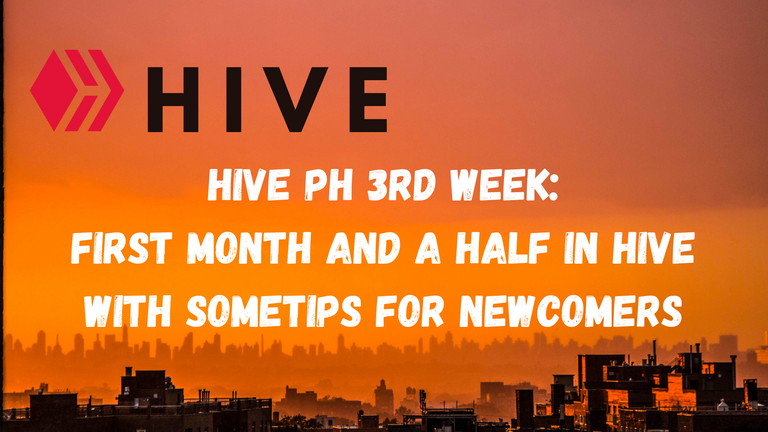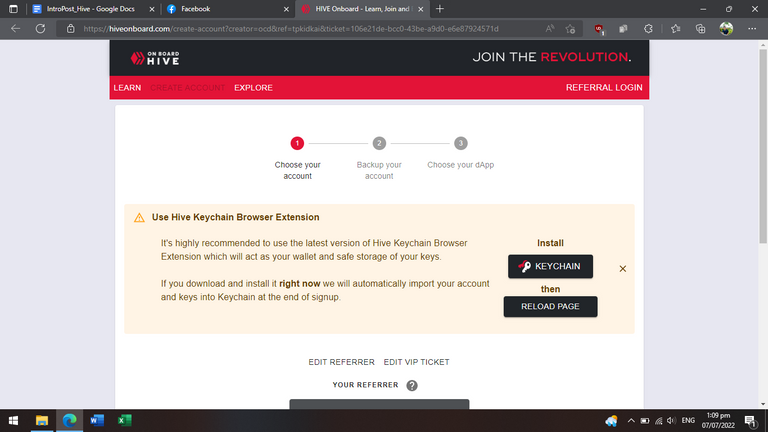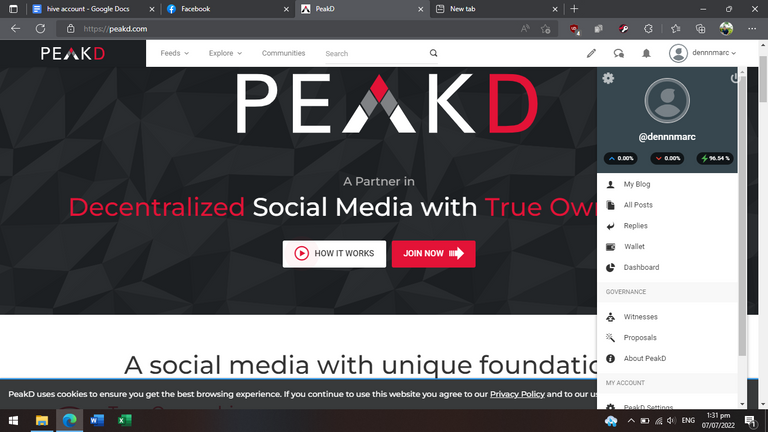
I've been with Hive for a month, a week, and three days. Supposedly, I wouldn't join the platform because I believe I missed the webinar at the time, which some of my friends attended. I felt like I was falling behind, with no idea how Hive works or what I needed to do here. In fact, I've read several articles about Hive, including how it works, how to earn money, and what makes it so great. However, the main issue here is not a lack of resources, but rather a lack of understanding of them.
Looking back, there were many questions and inquiries I had when I first joined. Those are more about how I can earn money, how my wallet works, and which communities I should join. To be honest, my focus on my blogs is too sporadic because I am not a traveler who posted travel blogs, a craftsman who posted craftsmanship pieces of stuff and definitely do not post food blogs despite being a good cook because of money. For me, there are several things to consider because you must be prepared like a soldier preparing for battle.

This is a screenshot from when I was setting up an account on Hive. I'll never forget how nervous I was because it seemed complicated, with a lot of steps required to create an account. My hands were trembling as I double-checked everything I wrote to ensure there were no errors. I can't afford to make one because I was warned that it would have an impact on my account. I recall closing and locking my door room that day because my little sister was bugging me and making it difficult for me to concentrate.

I eventually finished setting up my account. Because I used Peakd as my front-end, it looks like this. I'd say it took me about 20 minutes to finish creating my account and set it up, including uploading my profile photo, bio, and some of the basic things we have to write to make our accounts presentable. In addition, I created my wallet account by copying and pasting keys into the hive keychain. Another instance where my hands were violently shaking because it was the wallet, the most important thing of all.
Knowledge is power. If you don't know what Hive is, take your time researching and seeking information about it. There are videos and blogs available on various platforms that you can use as a resource. Keep in mind that a minor error, such as failing to save your keys, can end your career and force you to start over. Your comprehension of what you saw, read and watched will undoubtedly benefit you.
Engage to avoid enrage. There are many Hive communities, and I know at least two or three of them are suitable for you. When you join a community and intend to publish, make sure you read the community rules because not doing so can get you into trouble. Mute, banned, and warning are the three things I'm aware of, so I'd better not irritate the admins, moderators, curators, and members of the aforementioned community.
Write about what interests you. Everyone has their own set of interests, passions, and way of life. You are welcome to write about it and share it with us. Keep in mind that writing something you are unfamiliar with will always have an impact on the outcome. Curators and readers will notice that you lack knowledge and that what you wrote was inaccurate. Be as genuine as possible. Being authentic means not sharing your true identity if you are hiding it, but rather sharing your true knowledge and experience for the sake of your readers.
LISTEN. READ. WRITE. I want to capitalize these three words because they are central to why I have enjoyed, stayed, and continued until now. It's critical to listen when someone offers you advice on how to improve your writing. It makes no difference whether it is good or bad because the interpretation is still in your hands. Pay close attention to their instructions because they are bloggers who existed before you. That is, they have already experienced it before you.
The following one is read. We are not only writers but also readers. What we read from others influences how we write and what topic we will write about next. Read and carefully analyze their writing styles, especially if your focus is a fiction story. I learned that it is critical to observe how the writer attacks, deliver messages, and creates a storyline. Read and study their formatting as well.
Last but not least, there is writing. The reflection and knowledge you gain from them should, above all, be reflected in your writing. I'm not saying you have to be a great writer in one sitting, but it is a process. A cycle that we must learn and relearn now and then. When writing, make sure to proofread your work before publishing it. It's a way of saying you worked hard to do it.
One final reminder: stay committed to what you started.


